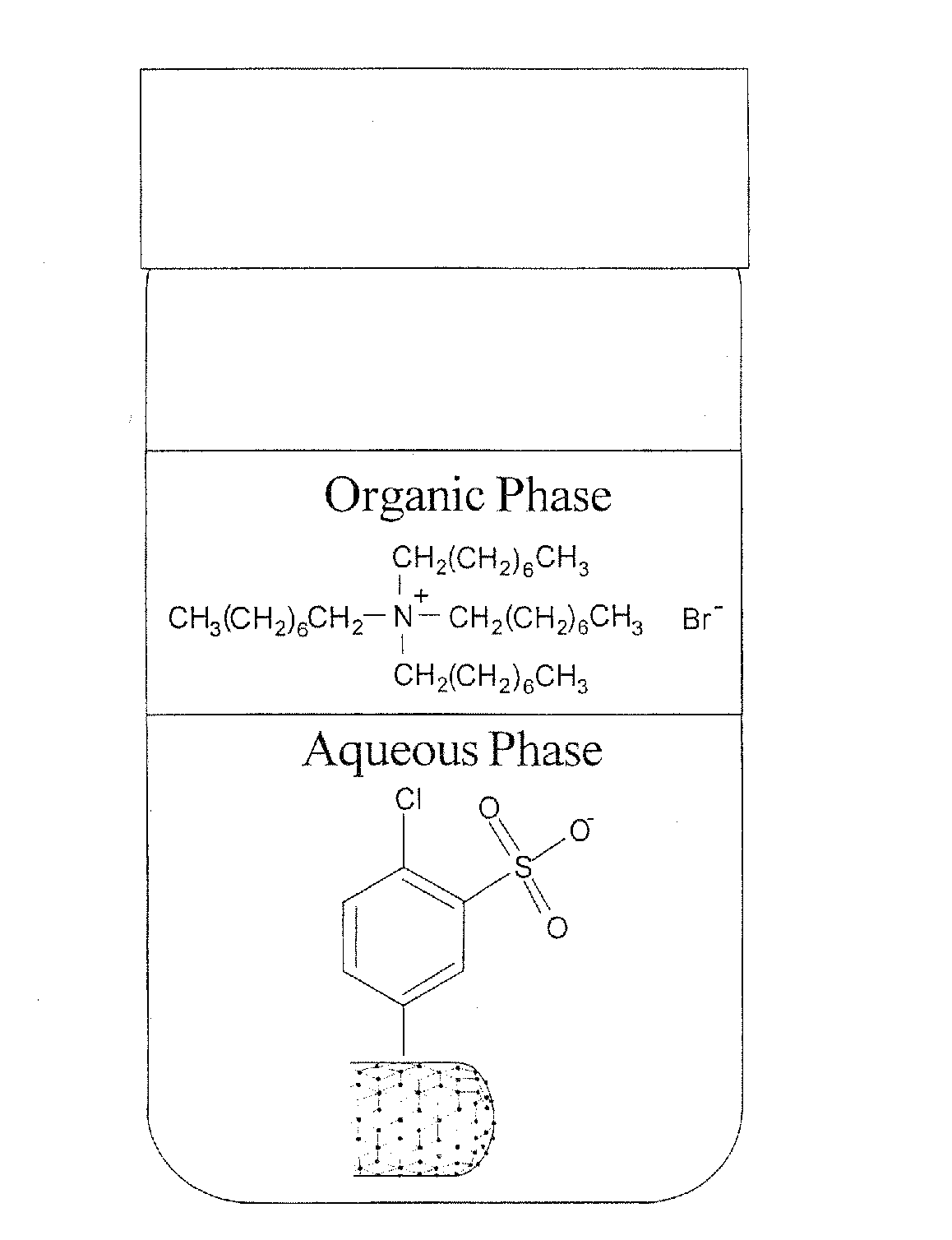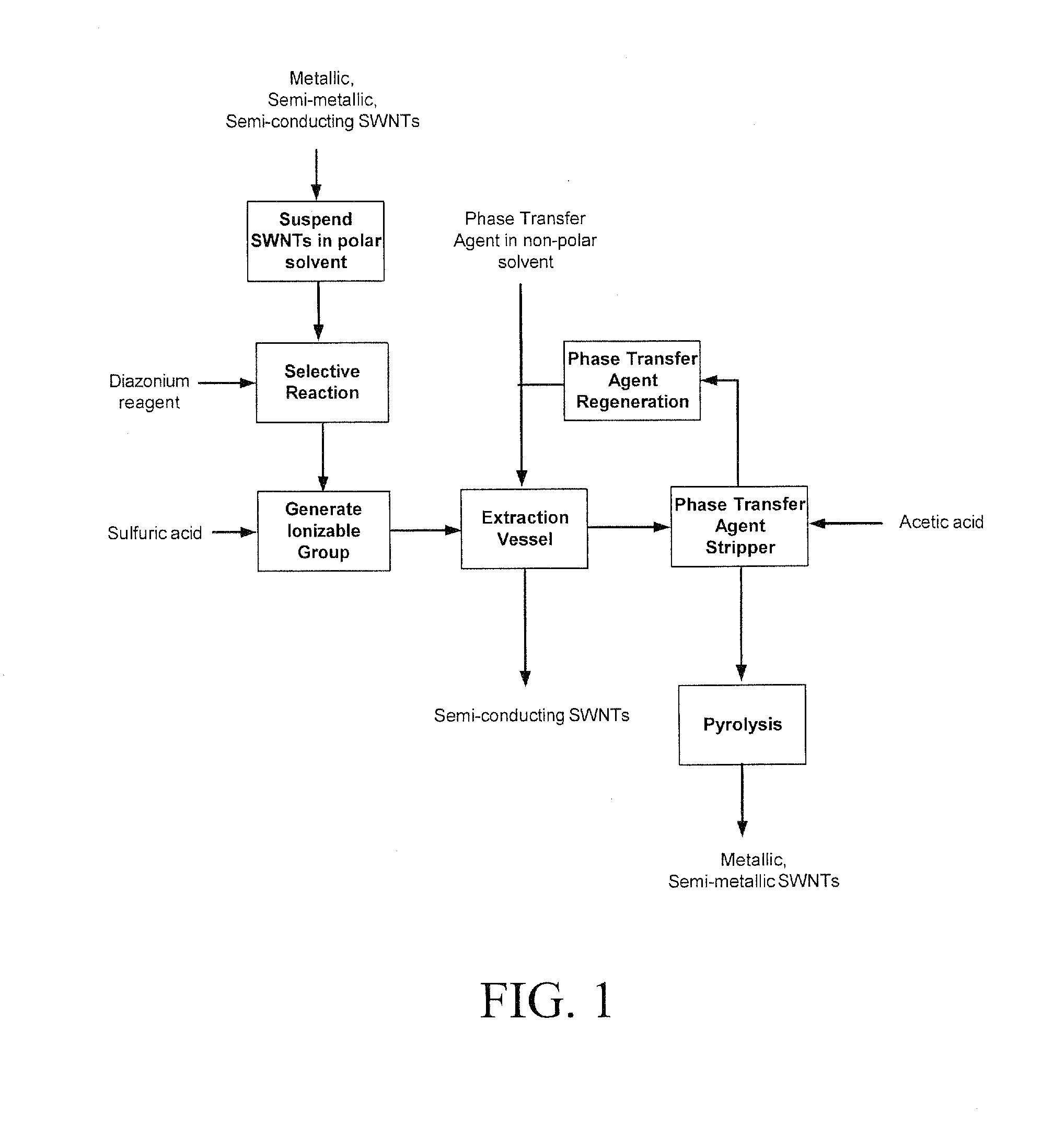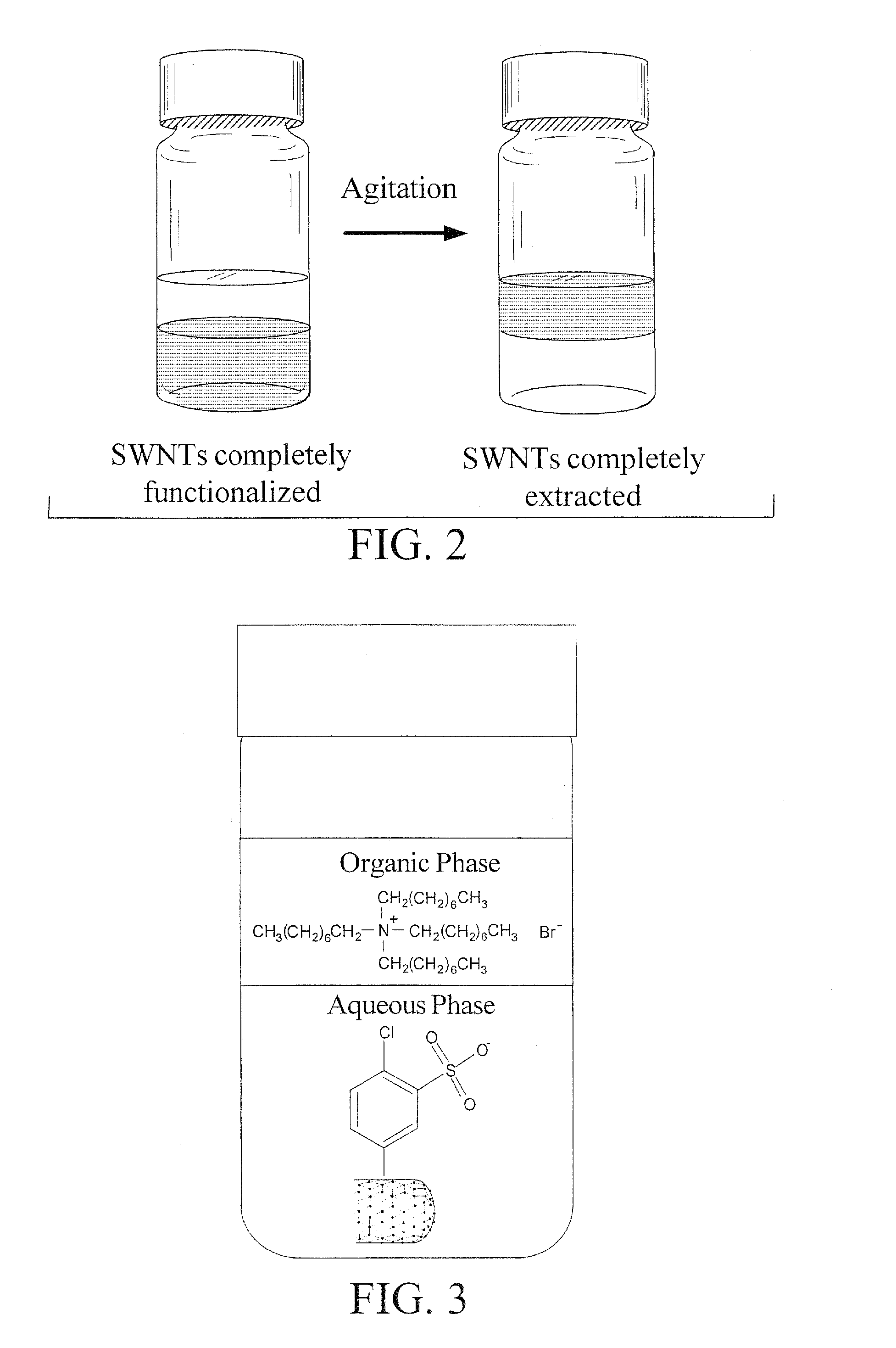Type Separation of Single-Walled Carbon Nanotubes via Two-Phase Liquid Extraction
- Summary
- Abstract
- Description
- Claims
- Application Information
AI Technical Summary
Benefits of technology
Problems solved by technology
Method used
Image
Examples
example 1
[0082]HiPco single walled carbon nanotubes are suspended in water using SDS surfactant by mild sonication. The SWNTs are reacted with 4-chlorobenzenediazonium tetrafluoroborate until the band structure, as witnessed by UV-vis-NIR (see FIG. 5), of all metallic and semi-metallic nanotubes have dissipated while the fluorescence peaks associated with semiconducting nanotubes show no appreciable changes (see FIGS. 6 and 7). The arene-functionalized nanotubes (present on the metallic and semi-metallic nanotubes only) are then further reacted with concentrated sulfuric acid to introduce a sulfonate group onto the benzene ring onto the arene-functional group. To this water phase, an organic layer consisting of a phase transfer agent, tetraoctyl ammonium bromide, dissolved in ethyl acetate is added forming a two-phase mixture (see FIG. 3). The two-phase mixture is vigorously agitated to increase interfacial area and allowed to settle for approximately 15 minutes. The ammonium cation has an e...
example 2
[0084]HiPco single walled carbon nanotubes are suspended in water using Triton-X series surfactants by mild sonication. 4-chlorobenzenediazonium tetrafluoroborate is altered to introduce a sulfonate group onto the benzene ring. The SWNTs are reacted with this diazonium salt until the band structure, as witnessed by UV-vis-NIR, of all metallic and semi-metallic nanotubes have dissipated. To this water phase, an organic layer consisting of a phase transfer agent, tetraoctyl ammonium bromide, dissolved in ethyl acetate is added forming a two-phase mixture. The two-phase mixture is vigorously agitated to increase interfacial area and allowed to settle for approximately 15 minutes. The ammonium cation has an electrostatic interaction with the anionic sulfonate moiety on the arene-functional group. With sufficient complexation and organic nature of the complexed metallic and semi-metallic nanotubes, the complexed SWNTs are dispersible in the organic phase and can be transferred across the...
example 3
[0086]HiPco single walled carbon nanotubes are suspended in water using SDS surfactant by mild sonication. The SWNTs are reacted with ozone which is believed to generate epoxide or ozonide groups on the nanotube sidewall. These epoxide or ozonide groups can be transformed to other functional groups by the addition of hydrogen peroxide (H2O2), dimethyl sulfide (DMS), and sodium borohydride (NaBH4) in independent runs to selectively functionalize SWNTs by diameter to introduce an ionizable group onto the nanotube. See methods disclosed by Banerjee, S. and Wong, S. (for example, “Demonstration of Diameter-Selective Reactivity in the Sidewall Ozonation of SWNTs by Resonance Raman Spectroscopy,”Nano Letters, 4(8):1445-1450 (2004); and “Rational Sidewall Functionalization and Purification of Single-walled Carbon Nanotubes by Solution-phase Ozonolysis,”J. Phys. Chem. B, 106(47), 12144-12151 (2002), both of which are incorporated herein by reference in their entirety). To this water phase, ...
PUM
 Login to View More
Login to View More Abstract
Description
Claims
Application Information
 Login to View More
Login to View More - R&D
- Intellectual Property
- Life Sciences
- Materials
- Tech Scout
- Unparalleled Data Quality
- Higher Quality Content
- 60% Fewer Hallucinations
Browse by: Latest US Patents, China's latest patents, Technical Efficacy Thesaurus, Application Domain, Technology Topic, Popular Technical Reports.
© 2025 PatSnap. All rights reserved.Legal|Privacy policy|Modern Slavery Act Transparency Statement|Sitemap|About US| Contact US: help@patsnap.com



